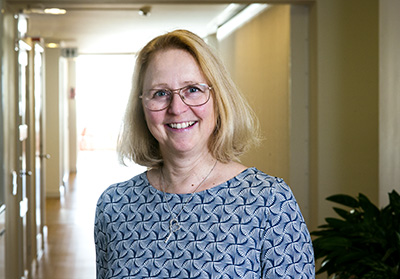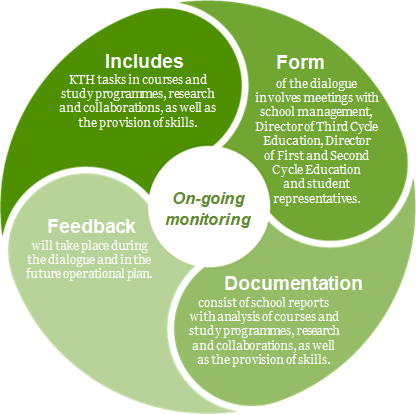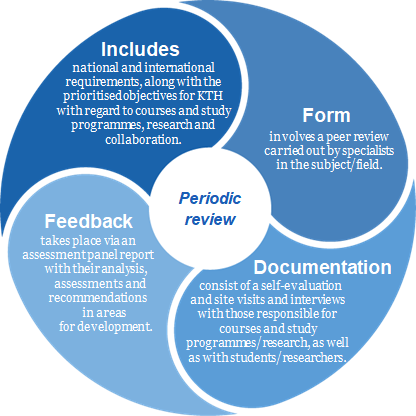Time for a new RAE that develops our research
To evaluate the quality of research undertaken by KTH, a Research Assessment Exercise or RAE, is to be performed in 2020, with the help of a subject specialist peer review panel consisting of top international researchers and experts.
“The aim is to develop our research via self-assessments and constructive feedback from peer reviewers,” says Annika Stensson Trigell, Deputy President for Research, who will head the RAE 2020 work.

This will be the third time KTH research will be subject to international peer review within the parameters of KTH’s regular quality assessments. The first RAE was performed in 2008 and the most recent in 2012.
It is clear that this type of scrutiny has an effect and not only leads to improvements but also to analysing and reflecting on the work we do.
Stensson Trigell explains that the 2008 RAE for instance, led to the creation of the KTH platforms, as a consequence of input from the peer review panels that had observed that while KTH was performing very good research within the energy area for instance, many of the research groups within KTH were strangers to each other. The assessments are also important in providing supporting data for different strategic initiatives both internally and externally.
“These assessments focus on quality development, that is to say analysing your own department and what we can do to raise quality. The panel reports should be viewed as advisory and recommendations based on the observations and own experiences of the peer reviewers,” says Stensson Trigell.
How the upcoming RAE is to be organised and structured is currently being planned. Anton Ridderstad of the department of planning and quality assurance, is the project manager, who explains:
“The RAE is a quality driving reality check and a pretty big brainteaser when it comes to organising it.”
All research, 43 departments, are divided into different research fields that are assessed by panels, each with around eight peer reviewers. Work in the panel is chaired by one of the international reviewers. Each panel also has a coordinator from the KTH faculty who is responsible for the self-assessments. The thinking is that the panels should match both the new KTH organisation and the subject divisions in ranking contexts.
Data in the form of bibliometrics and statistics for personnel and finance are obtained from KTH Common Education and Research Support (GVS), rather than as previously, when this fell to the researchers.
“The thinking here is that this will free up the researchers to concentrate on the self-assessments,” says Ridderstad.
Each respective panel is expected to participate in this work via workshops, for example.
“If we are to become even better, it is vital that everyone is fully committed and that quality work is pursued at all levels,” says Stensson Trigell.
Words: Jill Klackenberg



